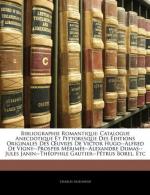|
This section contains 1,416 words (approx. 5 pages at 300 words per page) |

|
SOURCE: "The Double Register of "Les Destinées," in Studi Francesi, Vol. 64, 1978, pp. 104-6.
In the following essay, Haig analyzes the ambiguous imagery in Les Destinées of the relationship between humanity and the divine and concludes that the poem affirms Vigny's conviction "that hope is cruel folly."
The argument of the liminary poem of Vigny's most famous collection is well known. At the Savior's birth, the powers that Vigny syncretically terms destinée must temporarily relax their cruel hold over man; they appeal to the Lord (here called "Jéhovah", which for Vigny always means the terrible and vengeful God of the Old Testament), who reaffirms their subjugation of man. The Fates then return to their "proie éternelle" in the name of grace or Christian providence. The poem concludes with a question of metaphysical anguish: "Notre mot éternel est-il: C'ÉTAIT ÉCRIT?" an expression of the determinism...
|
This section contains 1,416 words (approx. 5 pages at 300 words per page) |

|


